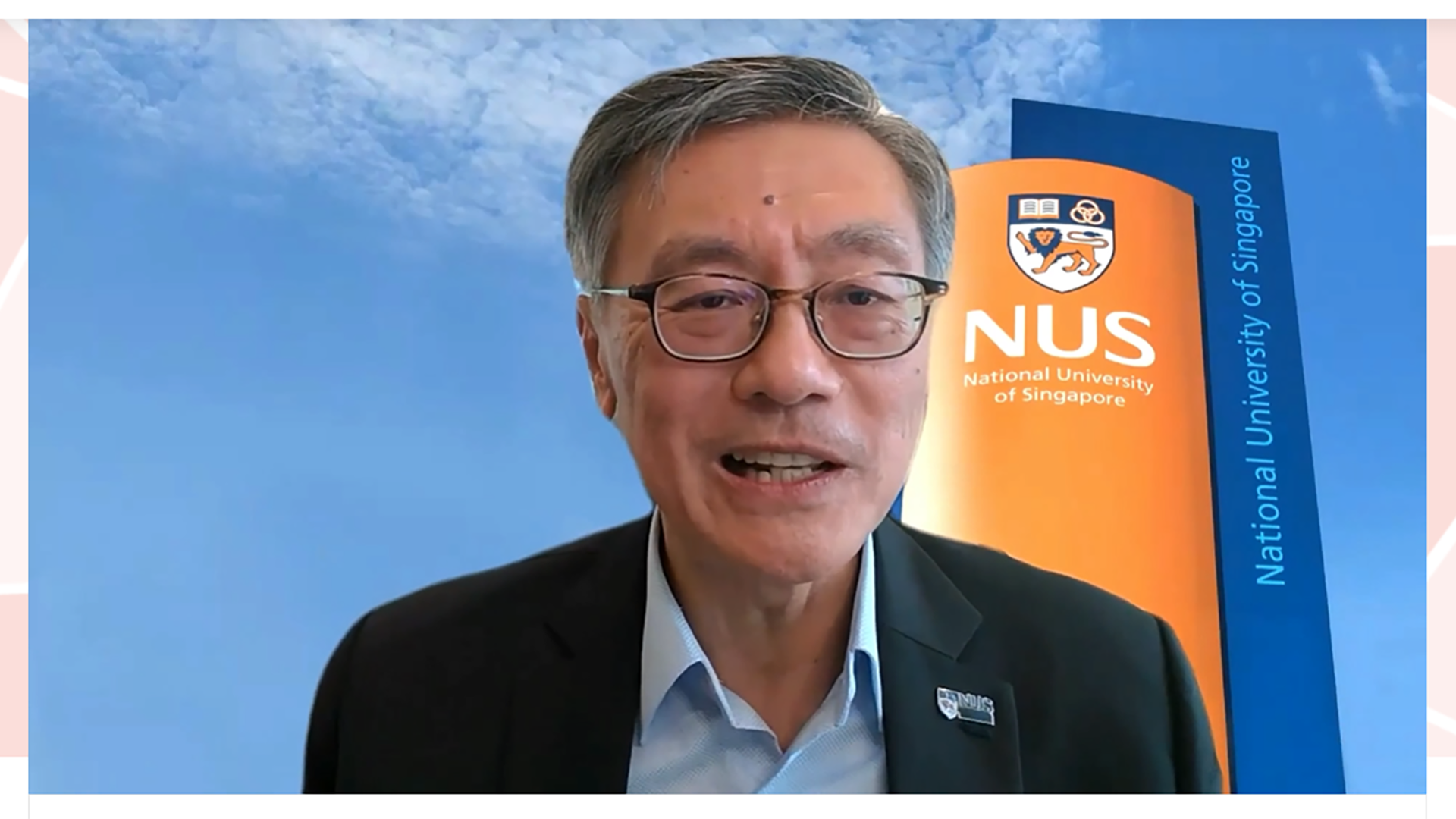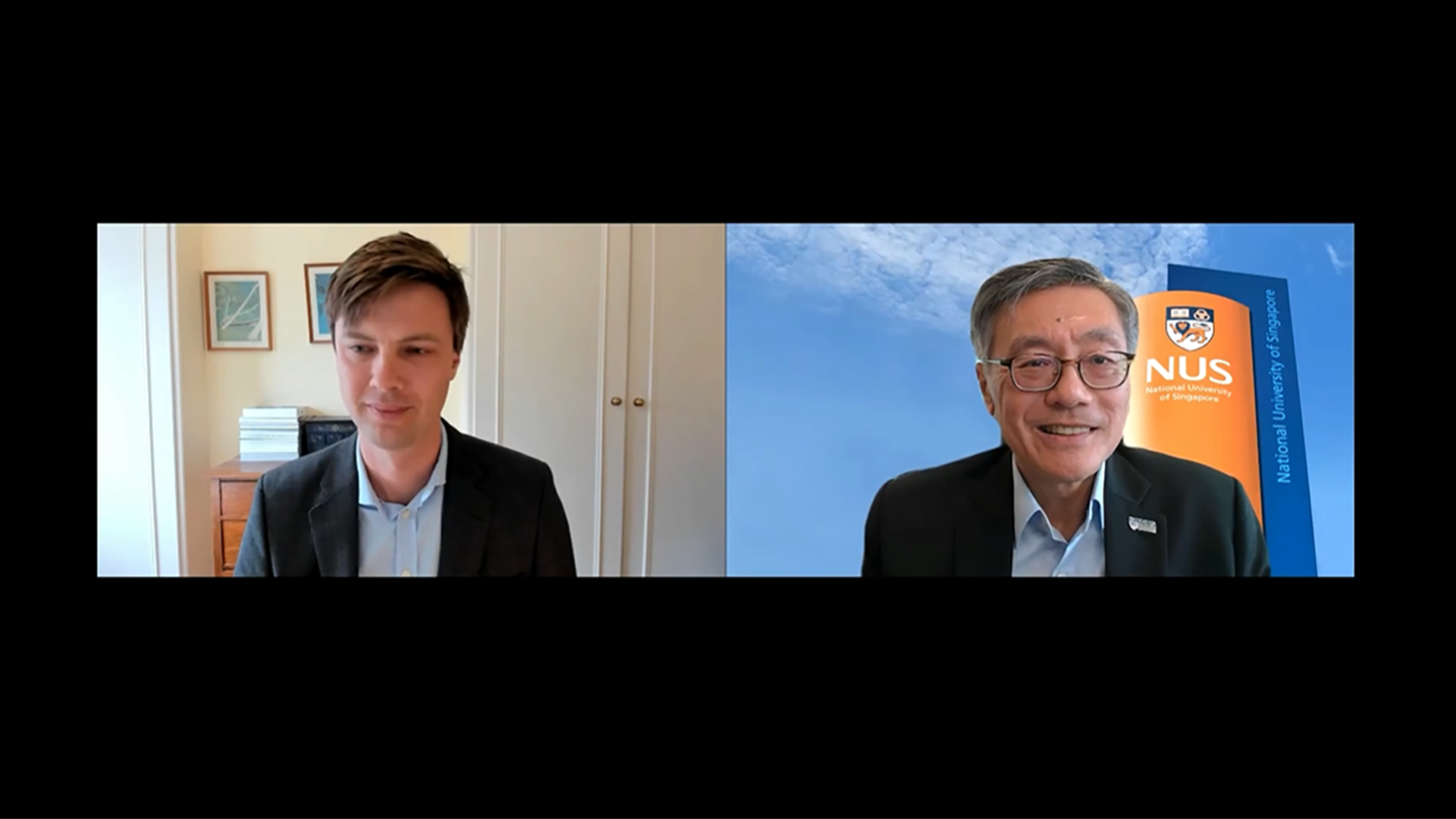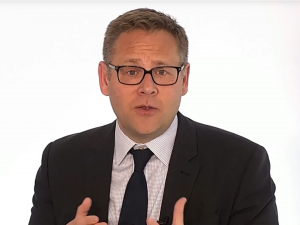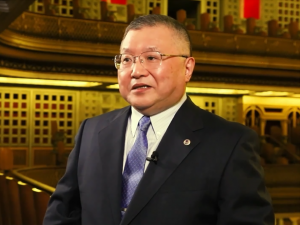Interdisciplinarity and lifelong learning: Strong support from alumni and employers
June 10, 2021

The University has received strong backing from alumni and employers as it steps up its focus on interdisciplinary learning and lifelong education, shared NUS President Professor Tan Eng Chye on 1 Jun at the opening session of the Times Higher Education Asia Universities Summit.
“When we talked to the alumni, there was very strong support. The alumni, they have been working for a long time and they understand the need for graduates to be more multi-faceted in terms of their skills and abilities,” said Prof Tan, who delivered the keynote address and fielded questions.
He added that while specialisation is good for certain areas, it is very hard for one to re-pivot when one’s skill becomes obsolete.
Employers are on board with the need for breadth in teaching. Students are also seeing the need in a fast-moving working world.
“We send our students for internships and they get a taste of what is happening outside. A lot of our students go for internships in start-ups, and then they see how quickly start-ups are having to re-pivot themselves,” he shared.
However, parents are a group that may need more convincing as they could be used to a different world. “They could be in fairly stable jobs or retired, and may not see the rapid and abrupt changes and disruptions. So we have a challenge to try to convince our parents that this change is essential,” said Prof Tan.

Transformational changes at NUS are key to preparing students for a world where disruption has been hastened by COVID-19, shared Prof Tan. Mega-trends that students need to grapple with include “wicked problems” with no clear-cut solutions, the Fourth Industrial Revolution, and digitalisation in all domains of life.
“My fear is that the repercussions to come and the disruptions to come are going to affect our students – not immediately now, or maybe only in some cases – but definitely within the next five years or so. And that’s where I think we need to respond much faster than usual.”
Imbuing a spirit of lifelong learning
Lifelong learning is the way to go for universities worldwide and NUS is focusing much attention on this area.
“We need a full transformation and not just tinkering with an outmoded approach. For instance careers are now 40 to 50 years. In an era of increased disruption, four years of undergraduate education is insufficient and imbuing a spirit of lifelong learning is critical,” said Prof Tan.
“For universities to pivot to lifelong education, our operational model and mindset must shift greatly. Industry relevance, new modes of training, easy entry and exit points for continuing adult training – these are critical factors.”
NUS has introduced the NUS Lifelong Learners Programme which allows alumni to automatically qualify for continuing education and training courses upon graduation.
The University’s Continuing Education and Training (CET) programmes offer close industry alignment and support the nation’s industry roadmap transformation of 23 critical industries such as manufacturing, built environment and healthcare, shared Prof Tan who is also a member of Singapore’s Future Economy Council.
Broadening intellectual horizons
Interdisciplinary education, as well as broadening the intellectual horizons of students and offering them flexible educational pathways, are also key to helping students be adaptable.
The NUS College of Humanities and Sciences will take in 2,100 to 2,200 students when the new Academic Year starts in August. They will undergo a common curriculum to ensure a strong grounding in both the humanities and the sciences.
Similarly, another 2,000 students admitted to the NUS Faculty of Engineering and NUS School of Design and Environment will also undertake a common curriculum.

Interdisciplinary teaching and learning requires synthesis and integration of two or more disciplines, which happens a lot in solving complex problems. “So we hope our students can be introduced to solving modern challenges, which are complex and often defy single-discipline solutions,” said Prof Tan.
The opening session also featured Times Higher Education Chief Knowledge Officer Mr Phil Baty and Professor Eiichi Saitoh, President of Fujita Health University which is the partner for the three-day Summit.
Fujita Health University’s Okazaki Medical Center made the news in the early days of the pandemic when it accepted passengers and crew from the Diamond Princess cruise ship, which was quarantined at the port of Yokohama. Prof Saitoh recounted those tense days in February and March last year, when the university developed strict procedures to care for the patients and ensure there was no transmission of the virus at the medical centre.
He also shared about how his institution has adapted to COVID-19.

“Like for any university in the world, the COVID-19 pandemic has demanded significant change in education and research. We saw first-hand how to utilise distance learning and virtual conferences, and their advantages and disadvantages. In my opinion, this experience has expanded the range and means of our activities more than ever,” said Prof Saitoh.
Mr Baty said that universities across the world have been an extraordinary force for good throughout the pandemic.
“The pandemic has not only been a global health crisis, but also a social and economic crisis and of course a tragedy. The cost of human lives, the cost of livelihoods, the deep scars in society for years to come, are all horrendous.” he said.
“But it’s been a huge source of optimism to me, a source of real hope, to have witnessed the extraordinary achievements, extraordinary resilience and dynamism from the world’s universities throughout this crisis.”
This article first appeared in NUSnews on 2 June 2021.

